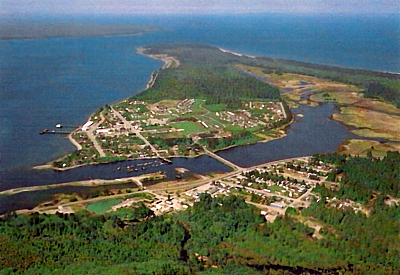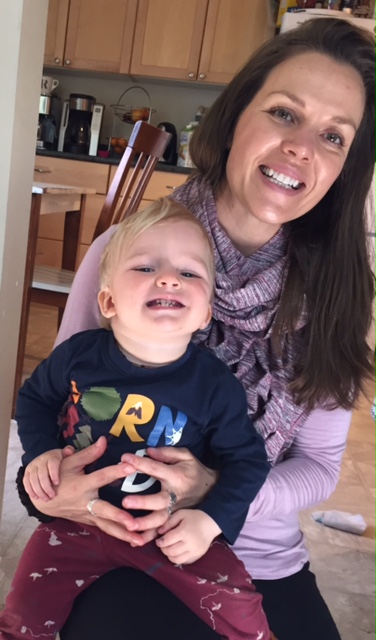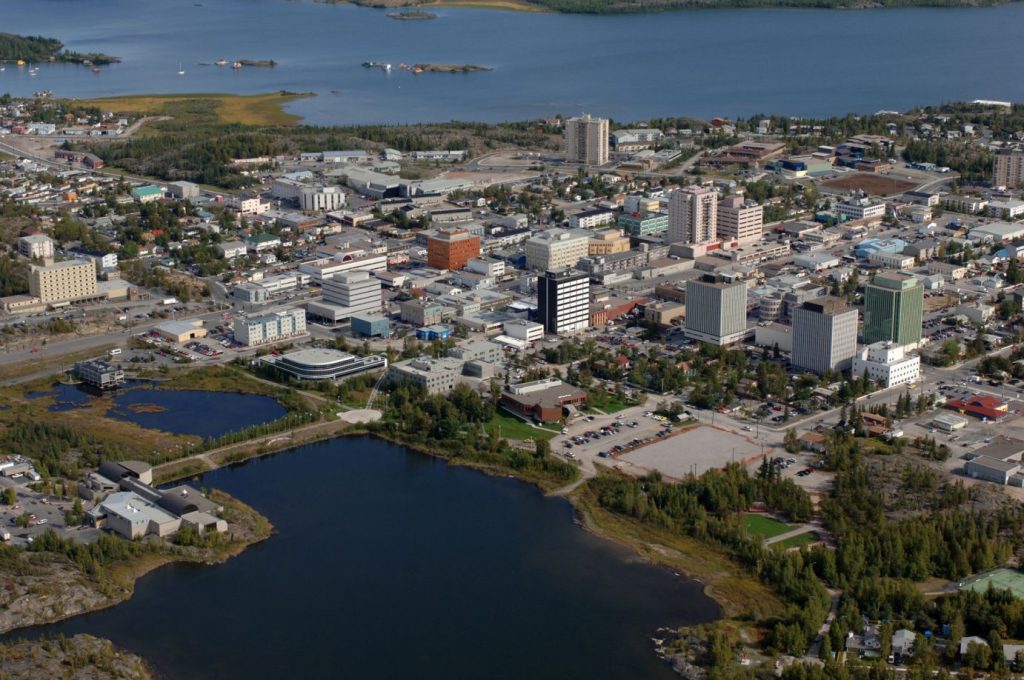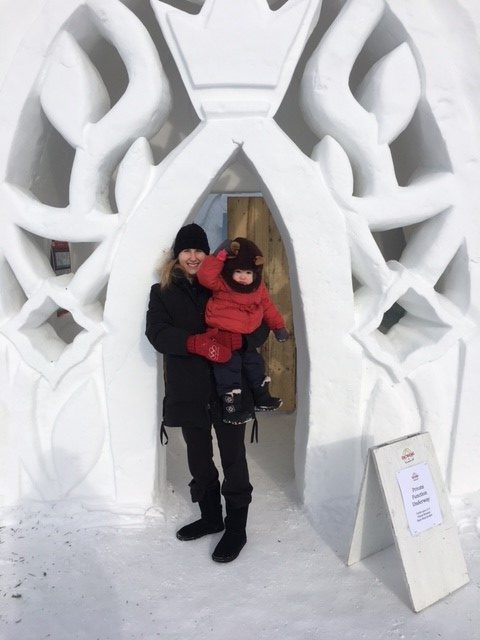Managing life-threatening food allergies can be complicated, anxiety-provoking and just downright challenging even if you live up the street from a university-affiliated hospital, and around the corner from specialty stores selling food products free of your allergens.
But Canada is an enormous country, and not everyone lives in a major urban centre. So how do you manage food allergies in a small community hours away by air from the nearest allergist? Where do you find safe food products when there’s only one grocery store for 150 kilometres in any direction? Who do you turn to for support when your child is the only person with food allergies anyone in town has ever met?
To find out, we spoke to two parents living in remote locations: Rosa Ware, a resident of Masset which is a village on Haida Gwaii, an archipelago of islands off the North Coast of British Columbia (formerly known as the Queen Charlotte Islands); and Janine Lai, who lives in Yellowknife, Northwest Territories.
Rosa Ware:
Where do you live, and what members of your family are managing one or more food allergies?
We live in Masset on Haida Gwaii. My son Odin, who is 16 months old, has a milk allergy, and is also allergic to dust mites. He was diagnosed at around 10 months.
Did Odin have any allergic reactions prior to diagnosis?
Yes, there was an allergic reaction prior to diagnosis. We were at home and I gave him a small piece of cheese; he’d never had dairy. He started having signs of what we believed to be an allergic reaction.
How was the emergency response in your location? What happened next?
We do have an ambulance in town, but honestly, I don’t think I even knew the number. The attendants would have been on-call so I knew it would be quicker for me to just drive him to hospital, which is less than a five-minute drive away.
At the hospital, the staff was good. It was a Saturday, so only the ER was open. They took my son in right away and dealt with his symptoms as best as they could. They’d never seen an anaphylactic reaction before so I think it was a learning curve for them all.
Did you work with a local allergist to have the allergy/allergies diagnosed, or did you need to travel to another city?
No, there are no specialists here. We travelled to The B.C. Children’s Hospital in Vancouver.
What was the experience of diagnosis like?
The experience was fine. They did the skin prick test and the reaction showed up as a milk allergy. I do wish they’d tested for all the allergens, as we must travel so far for care, and it would have been nice to eliminate the other allergens as triggers.
Is there anything different you need to do in your location to manage Odin’s allergies? Things people in larger cities like Vancouver or Toronto might not need to consider?
There are a few things: One is education. There’s only my son and one other child that I know of with food allergies in our town. So, I feel like I’m constantly educating people about the fact that milk can be a life-threatening allergy. Most people assume he’s lactose intolerant and just gets a bellyache.
There’s very little in the way of dairy-free specific foods available here. We don’t have Whole Foods or any other large health food stores; we only have one grocery store, so we have to get creative.
When we do need to travel off-island for appointments, it’s a long way to go and can be expensive, and there’s also the aspect of travelling with a child who has food allergies. This gives me anxiety as the ferry ride is seven hours, or the flight to Vancouver is two-and-a-half hours. The thought of him having a reaction on board terrifies me.
I don’t have a support system here of friends who also have kids with allergies, so sometimes it’s hard to talk to people about my struggles. And there’s no one who truly understands.
I feel like the medical care here is fine; when he’s had his reactions, they’ve known what to do. But I don’t feel like even the medical staff really know much about food allergies. Even the doctor was shocked to hear he was anaphylactic to milk.
So, would you say it’s difficult to manage Odin’s allergies in a remote community?
I’d say there can also be very positive things about living in a small and remote community while dealing with allergies:
- People have gotten to know that Odin has a milk allergy, and word travels fast. It’s nice to know that lots of people are aware of his allergy. People take extra steps to ensure his safety.
- Odin’s StrongStart teacher (early learning centre program) has made the entire class dairy-free, including anything brought in from outside.
- There aren’t too many places to go out to eat, so we don’t have to worry too much about dealing with foreign food.
Thank you for sharing your story with us Rosa.
Janine Lai:
You live in Yellowknife, and you have a daughter with an allergy to cashews and pistachios. Can you tell us more about that?
Yes. My daughter’s name is Brooklyn, and she was diagnosed with a cashew allergy, in February of 2017, at the age of 20 months. She was diagnosed in the emergency room after ingesting an energy bar with cashews and dates listed as the only ingredients.
Did your daughter have any allergic reactions prior to diagnosis?
The only indication we had of an allergy prior to the anaphylactic reaction was when she had eaten some pesto at around 17 months. She’s had pesto before on many occasions, but this one was made with cashews, not pine nuts, which I discovered after I went back through the packaging. She developed only a minor rash around her mouth and some itching around her ears. We didn’t even give her an anti-histamine for the first reaction as it was so minor. She has eaten other tree nuts — hazelnuts, almonds, pine nuts — and peanuts with no issue. We cannot distinctly recall her eating pecans or walnuts so those are an unknown for us right now.
How was the emergency response in Yellowknife?
After consuming one bite of the energy bar at a day home (daycare), she became violently ill and started scratching. Her airway was not immediately impacted, but we took her to the hospital as she was developing some facial swelling around her ears and her torso was covered in hives. We were extremely impressed with how fast she was admitted, as we did not realize the seriousness of the allergy at the time. There was some talk of Benadryl there but the doctor informed me they were going to treat her with epinephrine.
What happened next?
The ER doctor kept us in the hospital to monitor my daughter. The epinephrine worked fast, and we stayed for four hours. We saw two doctors and were impressed by their willingness to explain allergies. We were prescribed multiple EpiPen® Jr. refills, were told to stay away from all tree nuts, and that we would be referred to the Pediatrics Department for follow up.
Did you work with a local allergist to have your daughter diagnosed, or did you need to travel to another city? In either case, what was the experience of diagnosis like?
We do not have a pediatric allergist in Yellowknife, instead we have a pediatrician who consults with a pediatric allergist based out of Edmonton. We had a phone appointment with the pediatrician about a month after Brooklyn’s allergic reaction, and found her to be extremely helpful and knowledgeable in terms of the plan of action moving forward.
While we had been told in the ER to avoid all tree nuts, the pediatrician told us, based on consultation with the allergist, that we should continue to give her the nuts and peanuts that had not caused issue. Brooklyn continues to eat almond butter, peanut butter and hazelnut spread on a regular basis. Eventually we will try pecans and walnuts, likely at the hospital in case of a reaction.
We had one blood draw for cashew and her IgE levels were high, so she was told to strictly avoid all cashews and pistachios. We will check the levels again in a year to see if she would be a candidate for an oral challenge. We were also told that should our daughter have any additional reactions to food or any other allergies, to call in and we would be referred to the pediatric allergist, and we would travel to Edmonton for that appointment. The pediatric allergist was reluctant to do blanket testing for fear of false positives; we see the merit in this decision, although I do believe a lot of people would struggle with this.
At this time, we are comfortable with this game plan and have not had any further reactions. At first, we thought the allergy would be hard to manage but we have become accustomed to checking labels.
Is there anything different you need to do or consider in your location to manage your daughter’s allergies that people in larger cities like Vancouver or Toronto might not need to think about?
I think one of the biggest issues for us in a smaller place is the lack of chain restaurants that have allergen policies or menus. At times, we feel that servers don’t take our requests seriously and actually speak to the chefs. Also, a lot of activities here, especially in the winter, revolve around potlucks. She is young enough that we can control what she eats at the moment, but I am sure in the future the potlucks will bring challenges.
When out of the vicinity of the hospital, like hiking or boating, we must be especially careful to carry enough EpiPen Jrs with us, as there is no cell service even a short distance out of the city. However, in the city we are never more than about six minutes from a hospital, so that brings us a lot of comfort.
It makes me sad that we don’t have any options for a nut-free birthday cake from a bakery. It would be nice to send her to parties with her own safe cupcakes. Because we are a little more limited in options, yet so close to a hospital, I find we tend to be a little more risk-tolerant than some. For instance, I will allow her a Timbit (at Tim Hortons) if supervised.
We have very limited options for childcare and as such we have her in a day home (home-based daycare). The wait list for an accredited daycare here is huge, and she would not likely get in quickly. We have been so lucky with the home we have her in, but if her day home ever closes, others may not accept our daughter based on the risk of an allergic reaction. That terrifies me.
Is there anything else about your family’s experiences with managing allergies in Yellowknife that you’d like to share with our readers?
We are determined to be careful, but not to let this rule our lives. We love being a part of the great outdoors and will prepare ourselves accordingly. Despite not having a consult with a pediatric allergist, I feel confident in the care we are getting here.
Thank you Janine for sharing your experiences with us!
Learn more about managing allergies on our Allergy Safety page.
Tags: managing allergies, remote communities



